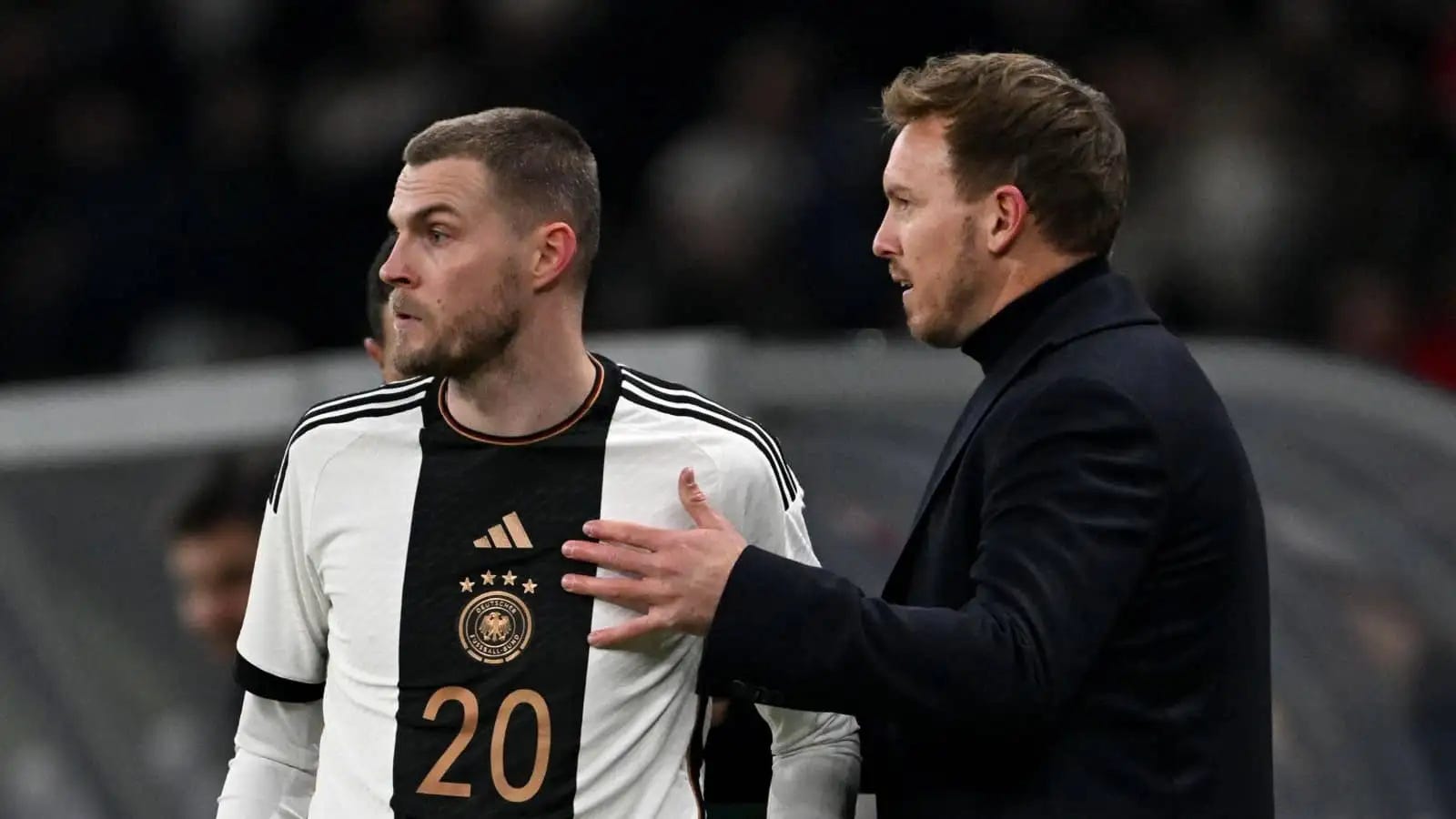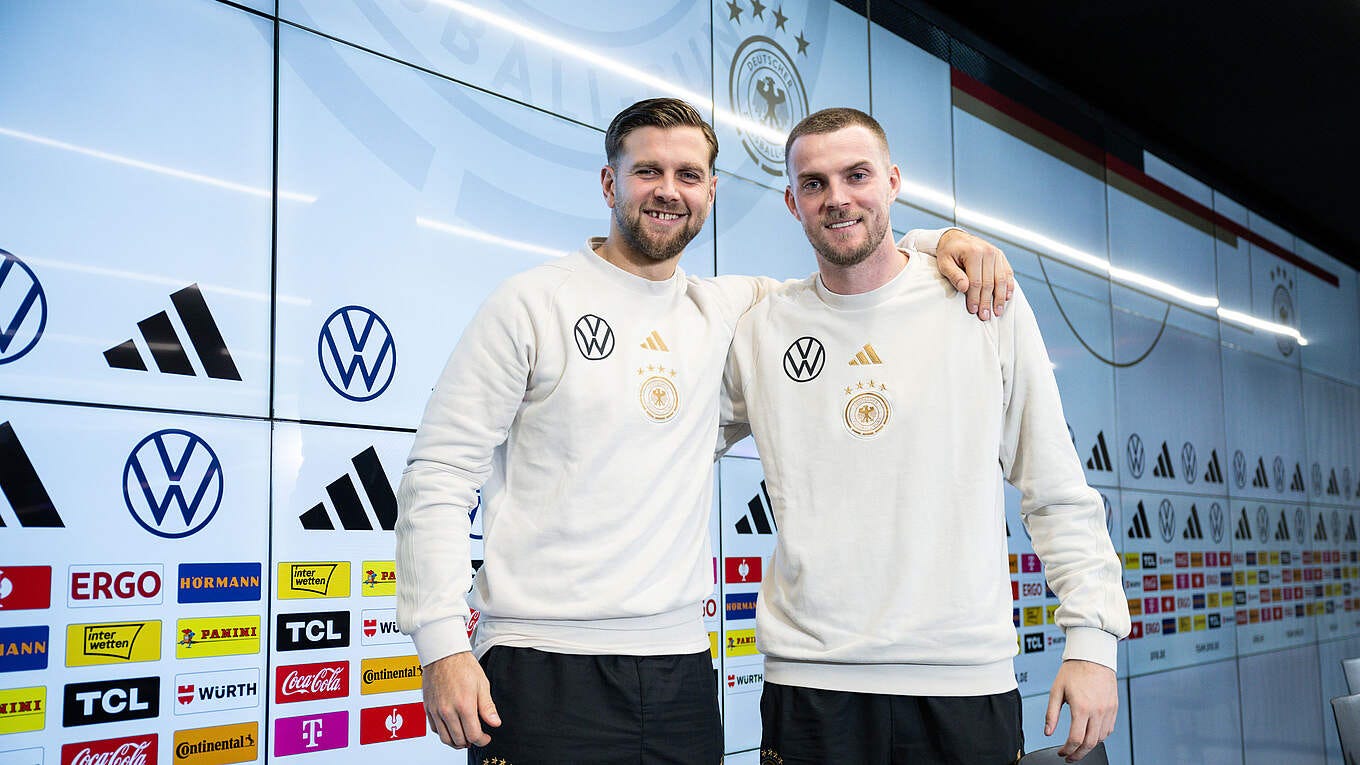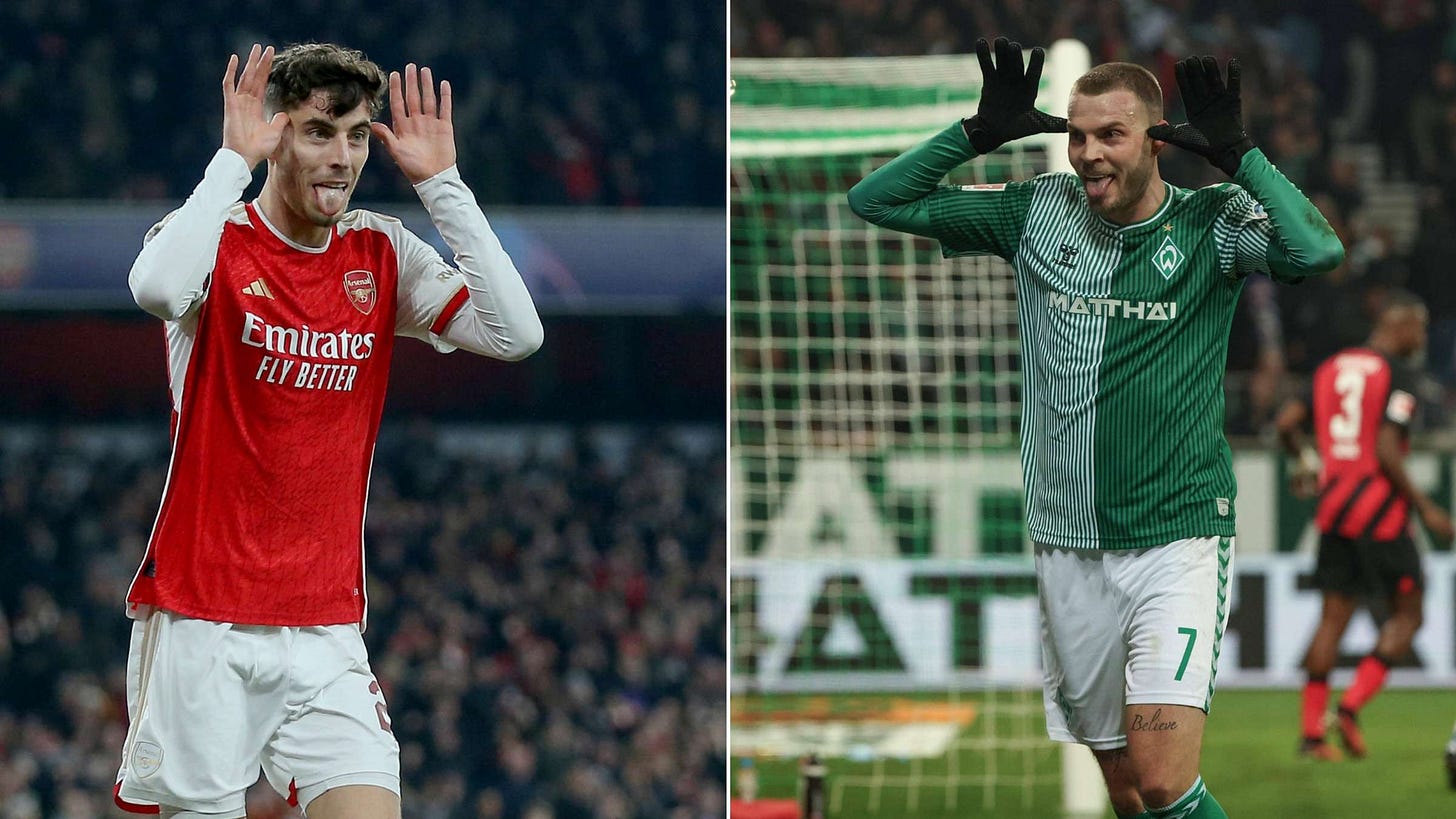Marvin Ducksch: The jack-of-all-trades whose Kai Havertz inspiration and could be the joker in Germany’s pack
Werder Bremen's jack-of-all-trades forward Marvin Ducksch poses a credible option as Julian Nagelsmann leads the nation into a home tournament that may require a joker in the pack.
This article is the first part of xG Files’ ‘EuroFiles’ series for the upcoming European Championship, profiling 24 players from the qualified nations with expert opinions from journalists, writers, editors and media guides from each respective nation.
This first instalment focuses on Germany’s unorthodox striker Marvin Ducksch, who could be the off-the-cuff player Julian Nagelsmann needs for a home tournament…
Werder Bremen’s Marvin Ducksch is far from your quintessential modern forward; the same can be said about his journey.
The ‘German Jamie Vardy’ moniker has often been banded with Ducksch due to their similarity in (1) appearance and (2) late rises to the top of their respective leagues. However, that's as far as comparisons between the two stretch.
Unlike Vardy, whose harrying pace and fox-in-the-box instincts have been the efficiency his game has been built on for the last decade, Ducksch's skillset is much more complex and intrigue-filled.
With a lanky 6ft2 frame, Ducksch unsurprisingly excels at operating as a pivot for players to play off, but his role is much more expandable than that. One is an immense feel for the ball — as Bremen’s primary set-piece taker — with four of his seven assists this season coming from dead ball situations, as well as sharpened goal-scoring touch throughout the years from the fourth division to the top, that saw him finish the calendar year of 2023 as the highest-scoring German and maintain Bremen’s top-flight status for another season.
The Vardy comparison, even in its light context, is a testament to Ducksch — crafted by an obscure path.
“Duksch made a name for himself at BVB (Borussia Dortmund) at first,” says Niklas Wildhagen, a Bremen fan who is part of the Talking Fussball podcast about German football.
“Making the cut there turned out to be too difficult, and his loan spell at Paderborn in the Bundesliga really didn't produce any sort of evidence that he should be a suitable striker at (the) Bundesliga level.
After that, he has been on some rides in the lower leagues. Usually, the next career step would have been considered make or break, but his move away from BVB and to St. Pauli in the Bundesliga wasn't the greatest fit. He scored once in 10 matches there and left after one season.
What turned things around for Ducksch in the end was the fact that he finally found a coach who knew how to use when he moved to the third tier in the 2016/17 season. Ducksch might not be the fastest of players, he might not necessarily be a player who can be spotted throughout an entire match, but he knows how to move into good positions and get there before anyone else, and he can speed up a team's game by using very few touches. (Markus) Anfang understood that, and since then, the goals started coming.
Afterwards, Ducksch had another stint in the Bundesliga at Fortuna Düsseldorf, where he scored one goal in 16 matches. That season in itself would have usually been make or break in terms of his ambitions to become a permanent fixture in the Bundesliga, as he was in his mid-20s and needed to show that he finally could find the back of the net on a regular basis at this level.”
There's a stigma of doubt that follows a striker at the age of 27 with a goal-scoring record that suggests a ceiling has been reached. One that can deter clubs—but not Anfang—who reunited with Duksch at Bremen after signing from Hannover 96 in 2021.
Duksch's scoring prowess in the second division was proven, and at Bremen, under a coach with an understanding of his game, the expectation was that other levels of his game would be maximised. Briefly, under Anfang, before his tenure was cut short due to allegations that would become true of the vaccination scandal, and then prominently under Ole Werner, who was manager of Holstein Kiel reserve side when Duksch was at the club — as Werner’s 3-5-2 enabled a connection to be struck between Ducksch and his then strike partner Niclas Füllkrug, with the pair combing for 58 goals, which fired Bremen back into the Bundesliga.
“The understanding between him (Füllkrug) and Ducksch was the main reason for Weder getting promoted to the Bundesliga,” said Wildhagen.
And for them staying in the league (13th place finish; three points off the relegation play-offs) the following season.
Like Ducksch, Füllkrug is a fellow late bloomer. He has a sterner character. He is driven by goals, the lynchpin of whatever attack he is a part of, and seems capable of producing at any level played, as seen with his Champions League and international exploits.
Füllkrug’s departure to Dortmund last summer re-opened the query on Duksch’s impact in Germany’s top division. Dukschi, as he tends to be known, is a self-anointed ‘free- spirit.’
He is as much of a maverick off the pitch as he is on it. In an interview with the German magazine Kicker, he spoke about his fondness for a New Year’s pizza, not being so fond of eating the “right things," and how he missed a training session last season due to late partying the night before.
Nonetheless, the reality of parenthood has settled him down after the birth of his son, who lives with Ducksch's former partner in Kiel.
His 19-goal contributions this season are the most productive of his Bundesliga career so far (at the time of writing).
“He has actually proven now that he has arrived at (the) Bundesliga level and that he is one of the better attacking players in the league,” stated Wildhagen.
A statement national team head coach Julian Nagelsmann clearly agreed with when he called up Ducksch last November—making him the first Bremen player (apart from Füllkrug) to earn a call-up since Max Kruse in 2019—receiving the call while playing Fortnite with friends.
Nagelsmann cited Duksch’s “degree of crazy” as a factor in his call-up. Despite only featuring for 21 minutes across two friendlies against Turkey and Austria, his influence, specifically on players, was felt, with the rejuvenated Kai Havertz dedicating his jester-like celebration to Ducksch's and, of course, reuniting with former clubmate Füllkrug—a chemistry the pair noted in media duties could prove beneficial, if used, for a national team that has starved of clarity in the frontline post-’14 World Cup triumph.
At the club level, Ducksch’s talismanic displays, particularly in the latter stages, have propelled Bremer out of relegation contention and into a position of late flirting with a top-half finish. He has reiterated his desire to play in Europe, whether at Bremen or elsewhere, with a rumoured buyout clause that hinges on Ducksch’s potential Euro’s involvement.
“Werder won't be a club offering him that sort of luxury (European football) any time soon.” On whether he could make the jump to the European level, Wildhagen added, “One thing that might actually speak in Ducksch’s favour is that he never really has heavily relied upon speed. He himself actually pointed out that he himself, as a youth player, would have difficulties getting picked by a Bundesliga club due to the fact that he doesn't have the highest of top speeds. Additionally, one might also add that he has a great understanding of the game and how to move, his eye for the teammate next to him has gotten better over the years, and his finishing is decent. All of those things tell me that he could cut it at a higher level than Werder Bremen.”
All of which make Duksch an appealing option for Nagelsmann should he choose.
At 30, as the old adage goes: jack of all trades, master of none; Duksch’s profile, at the very least, is a compelling case amongst the traditional demands of a centre-forward.
On why Nagelsmann should include him for a home tournament, “I think that there is simply no other type of player like me in the team.”





